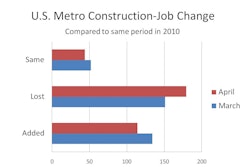I was chatting with an acquaintance the other day, getting to know him a little better. You know how those things go. You cross paths with someone; work on a project or two;
discover you share a passion for hard work and customer service; and start getting to know one another on a more personal level.
During the course of our casual conversation Kevin mentioned a large, well-known, highly respected company he had worked at for over 15 years. This is a company that nobody leaves prior to retirement. It's a company people are constantly trying to get in to. Knowing Kevin's skills and effort I wasn't surprised to learn that Kevin's departure was his choice not theirs.
I asked him whether he was driven away or felt his present employer offered too great an opportunity to pass up. Turns out it was due to the former. Kevin shared his story and it is reflective of a problem we are going to address today: supervisors.
Kevin told a story of continued professional success, growth, and advancement. He had performed numerous different jobs with increasing responsibility. His last position was an important one with outstanding compensation and had been highly enjoyable for the first couple of years until - you guessed it - he got a new boss.
He and his new boss didn't get along. They didn't understand each other. They didn't communicate well with each other. Kevin didn't respect his new boss' decision making, constantly changing prioritizes, and people management style. For Kevin, success became difficult, the job became a grind, and each day grew more frustrating than the previous one.
He quietly put out a few feelers. A decent offer from a well-respected company came in and Kevin left a company that nobody leaves.
The moral of the story is that good employees do not stick around when working for bad bosses.
You might not be aware that research backs up that claim. The largest study ever conducted looking into why employees voluntarily leave concluded that 70% of them left because of conflict with their immediate supervisor. Over 60,000 workers were surveyed. The conclusion is irrefutable.
Kevin's story of constant career advancement until running into a difficult/impossible supervisor and leaving is one that I've heard many times over the years. Good workers will not stay in a position set up for failure. They will not work long for a boss that is disrespectful, disloyal, and untrustworthy.
Here's the kicker. Take a guess at what the hardest thing to do in business is?
Getting sales?
No.
Keeping cash around?
No.
Managing people?
Not really.
The hardest thing to do in business is to flood it with hardworking, passionately committed, highly skilled employees. "A" players. Superstars.
The great ones are always being pulled at from outsiders. They are always being recruited. They know their value to a business. They typically play hard ball on compensation. They are also the basis of your competitive advantage and long term success.
You can't afford to lose great workers and since the main reason they leave is their immediate boss, you can't afford to leave a poor manager in place.
As a contractor, we can pretty much assure you that your problem supervisor will be a foreman or superintendent who is a hard-charger.
Typically foreman and superintendents get promoted to their leadership position due to their craft skills, knowledge, and work ethic. They rarely get promoted due to their
projected leadership skills. Their ability or disposition to manage others effectively almost is never considered.
When helping contractors solve a turnover or performance management problem, we've almost never had a client tell us he or she considered the likelihood the foremen would be someone others would want to work for prior to elevating them to foreman. By the time we're called in, the owner has usually picked up on the fact that no one wants to work on that man's crew.
Building a highly functioning team starts at the top. You must be a solid leader, one that others don't mind working for. Then you must make sure that everyone else in your
company that leads people behaves properly and treats his direct reports fairly and respectfully. That he doesn't set impossible goals. That he doesn't provide them with
broken tools and equipment. That he looks far enough down the road to clear roadblocks before the crews get to them.
The only way you're going to know how well your foremen are leading your crews is to ask your field workers directly and privately. You cannot take the word of your
foremen. You must hear it from the front line. We guarantee you that if you listen to your employees and take action when it becomes clear that a supervisor is causing problems, good workers will stick around and help you take your company to the lofty heights you seek.
Keeping Supervisors In Line
Good employees do not stick around when working for bad bosses.
Latest in Personnel Management




















